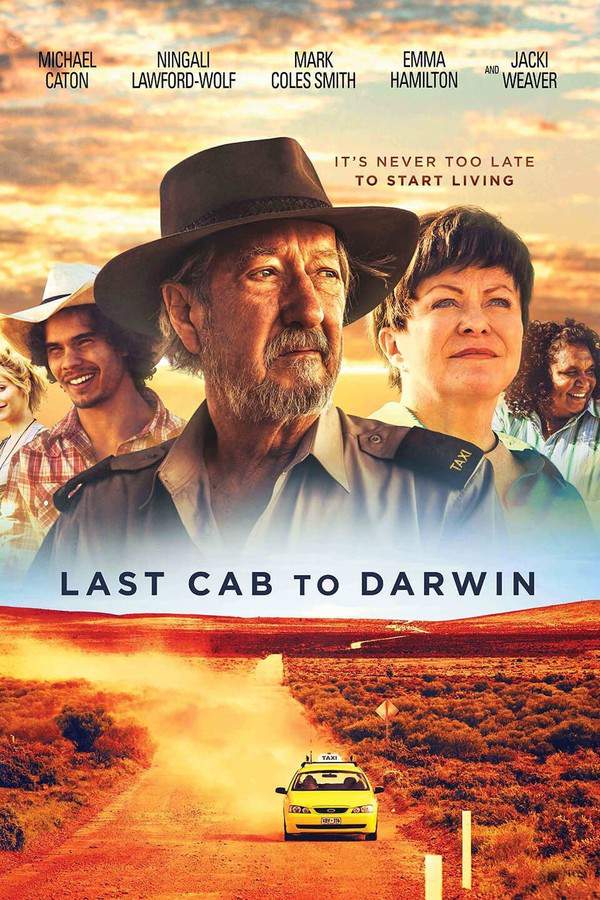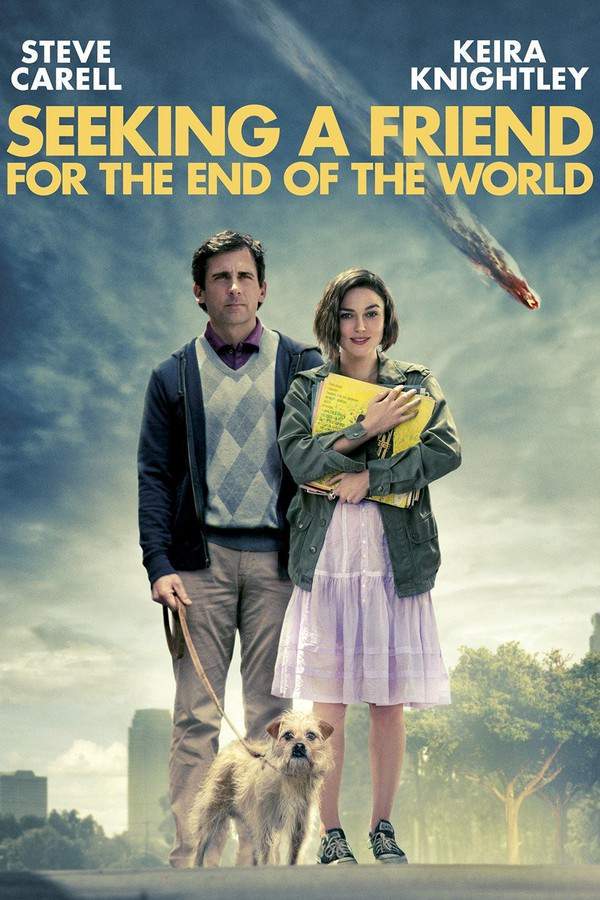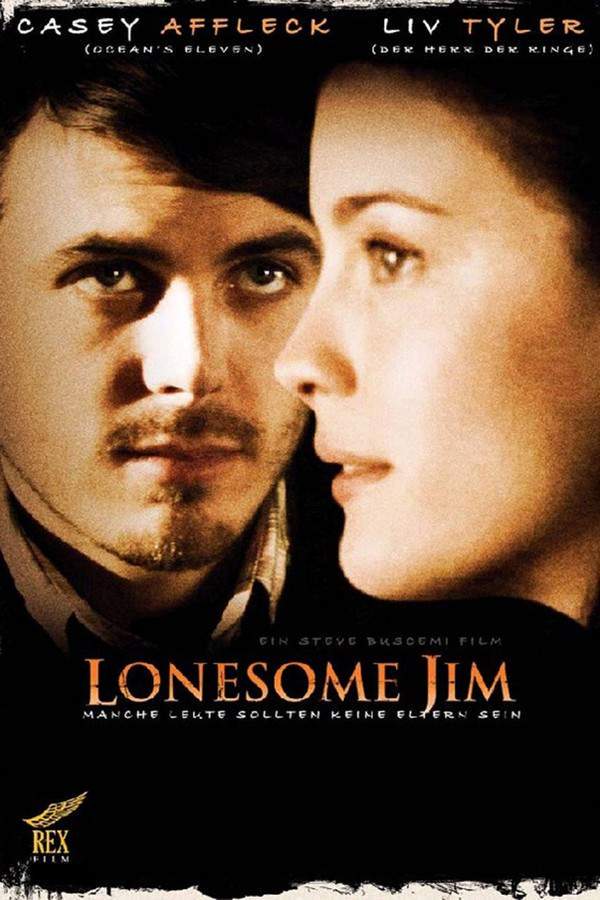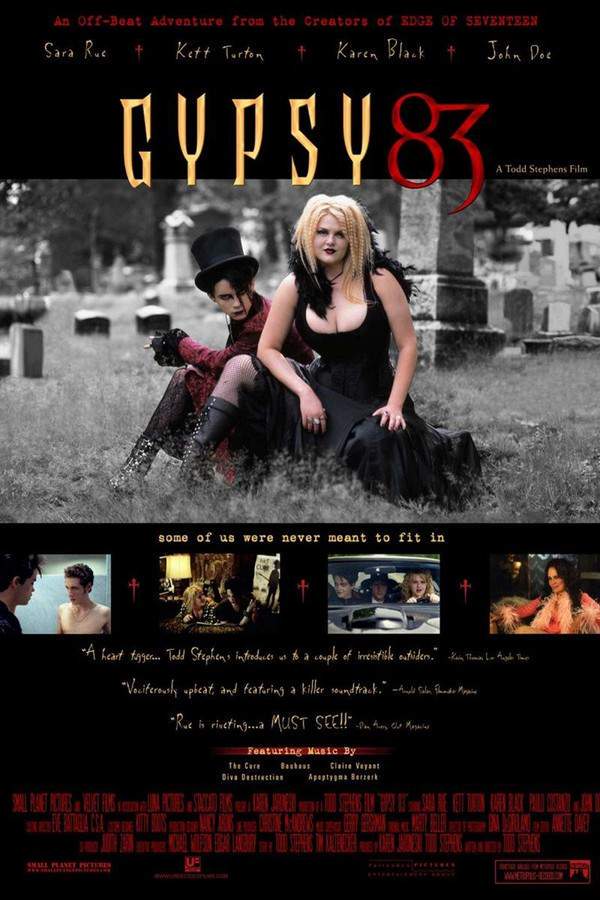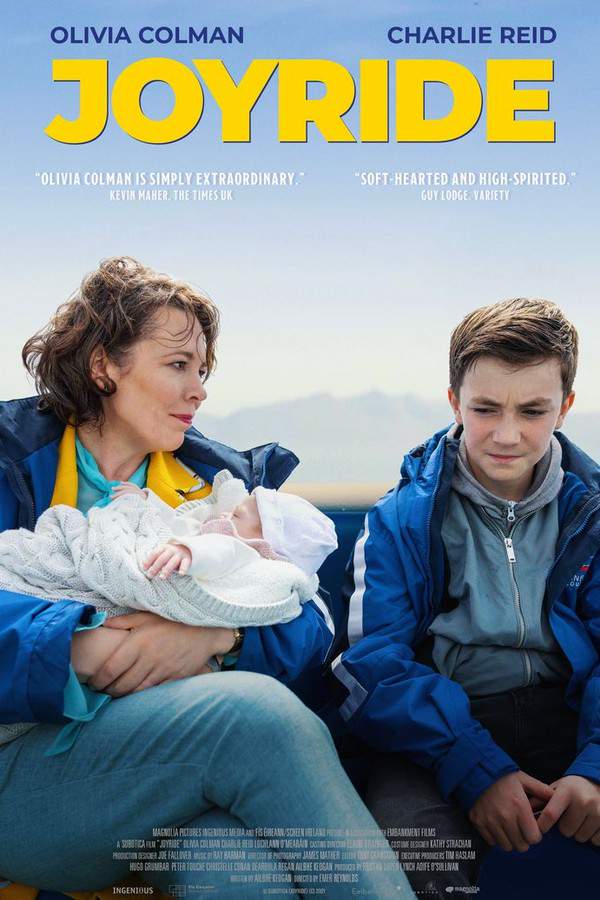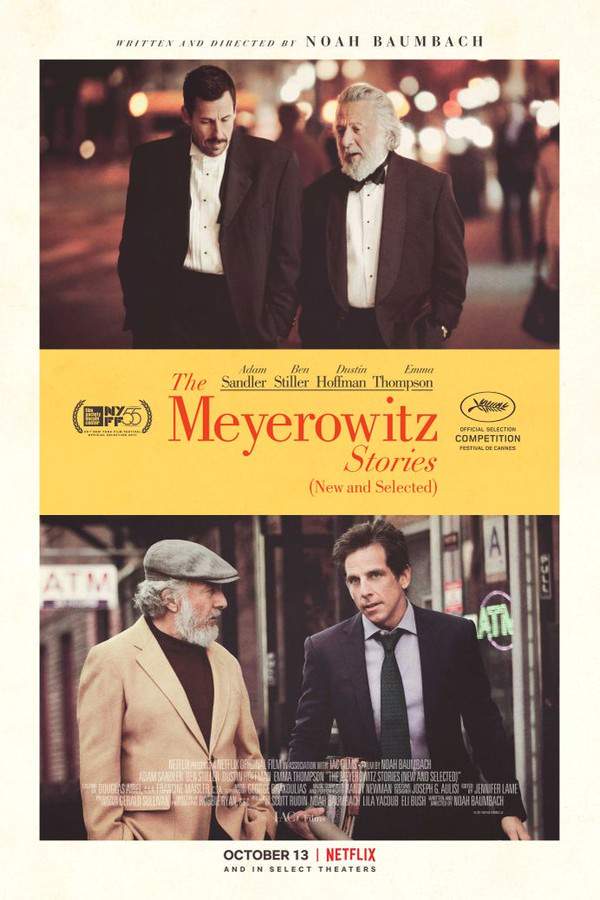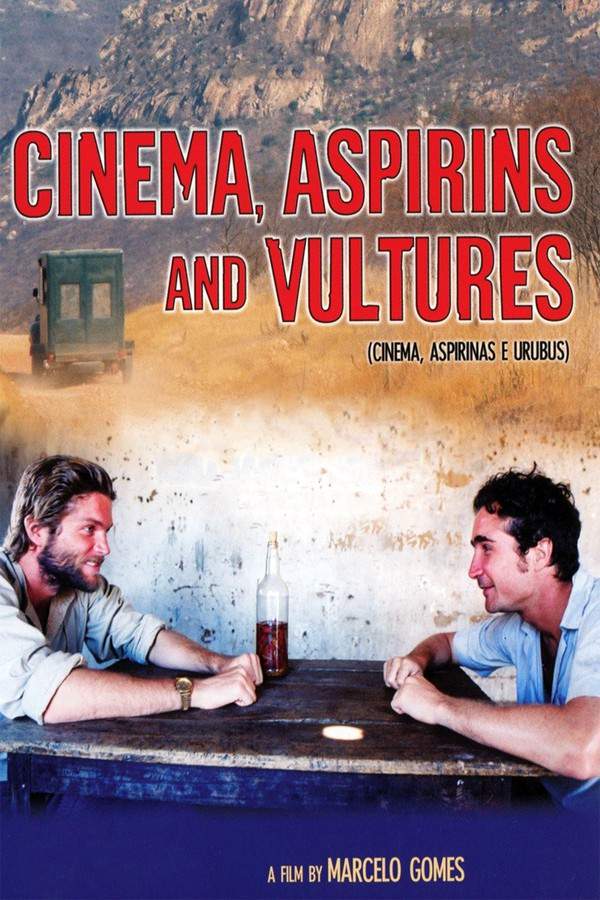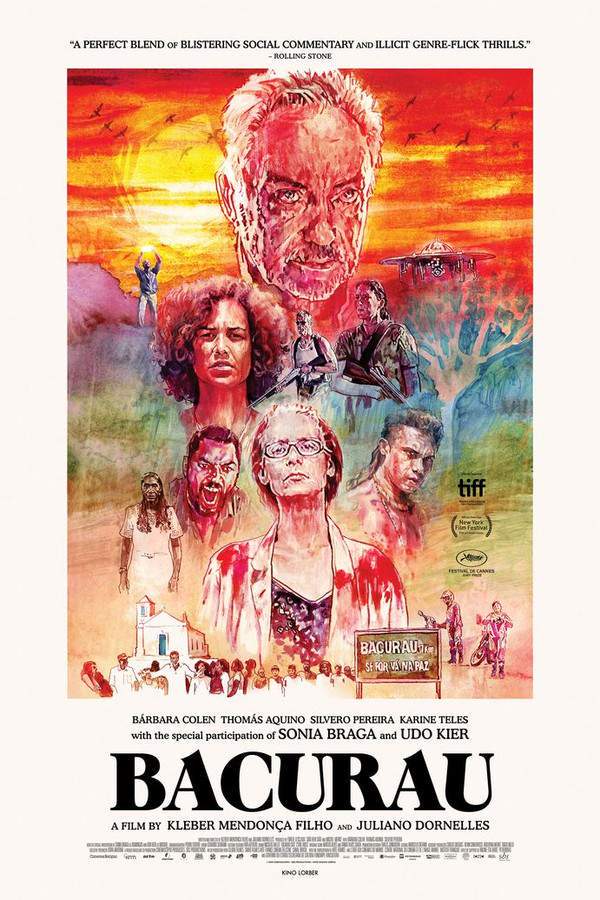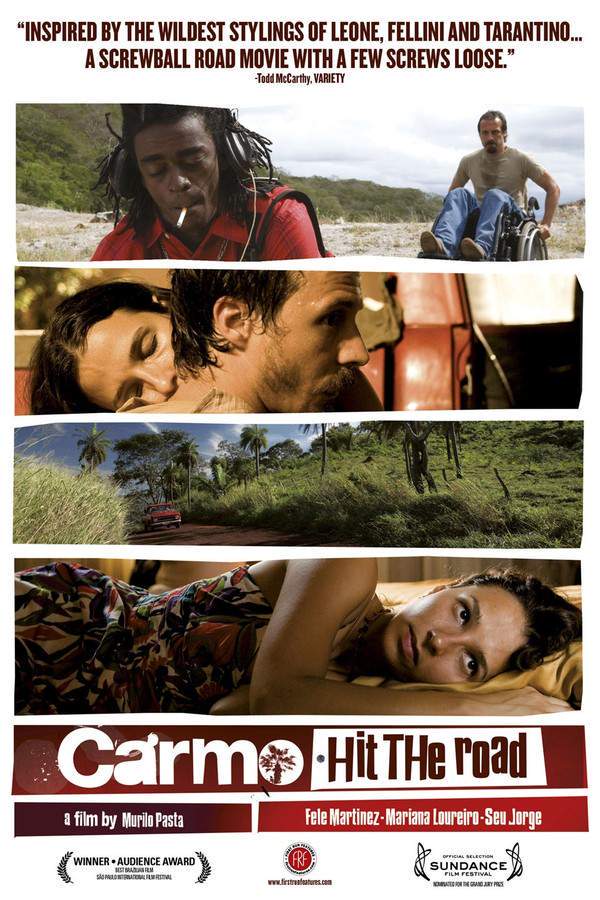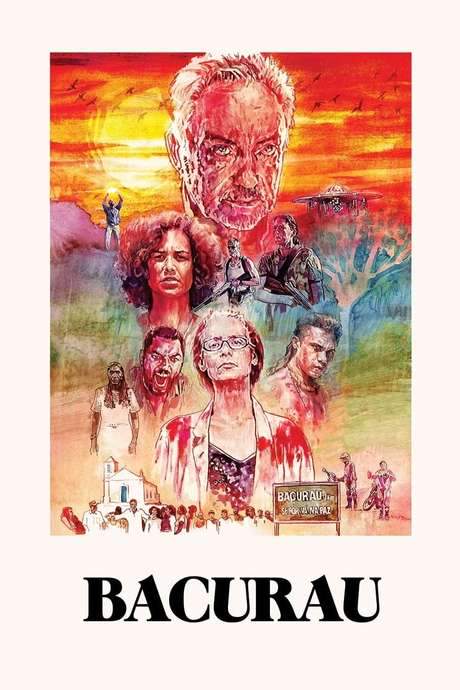
Bye Bye Brazil
Year: 1980
Runtime: 110 mins
Language: Portuguese
Director: Carlos Diegues
Rejecting television, they leave the coast and venture into the Amazon. The Caravana Rolidei arrives, with the Gypsy Lord presenting magic tricks, Salomé’s sensual dance, and the mute Swallow’s strength feats. An enamored accordionist asks to join; the Lord agrees, and the musician and his pregnant wife, Dasdô, become part of the troupe.
Warning: spoilers below!
Haven’t seen Bye Bye Brazil yet? This summary contains major spoilers. Bookmark the page, watch the movie, and come back for the full breakdown. If you're ready, scroll on and relive the story!
Bye Bye Brazil (1980) – Full Plot Summary & Ending Explained
Read the complete plot breakdown of Bye Bye Brazil (1980), including all key story events, major twists, and the ending explained in detail. Discover what really happened—and what it all means.
The Caravana Rolidei, or the Holiday Caravan, is a traveling show built around a trio of core performers plus a couple who join along the way: the enigmatic Lorde Cigano (the Gypsy Lord) leads the troupe, alongside the alluring Salomé, the exotic dancer, and the mute strongman Andorinha. They haul a battered van through the riverine landscapes along the São Francisco, stopping in small towns to dazzle locals with a mix of tricks, music, and spectacle. The caravan moves from one quiet roadside stop to the next, weaving a shadowy thread of possibility through every dusty road and fading storefront. Their performances feel less like a planned show and more like a living, roaming piece of theater that travels where opportunity calls.
As the caravan rolls into another town, a local accordion player, Ciço, begs Lorde Cigano to let him join the troupe. The request is simple, yet it carries a deeper longing for belonging and a chance to ply a trade that feels more honest than the side gigs in the towns they’ve left behind. Lorde Cigano grants the request, and Ciço joins the caravan along with his pregnant wife, Dasdô. The addition of Ciço and Dasdô sweetens the group’s dynamic, adding a sense of domestic stakes to the nomadic lifestyle. Together, the five performers set out in search of new audiences, hoping that the next stop offers a break from the lean years and a chance to build something steadier, even if just for a moment.
Their journey leads them first to Maceió, where they yearn for the ocean and the promise of better prospects. Yet the sea and the city’s allure fail to translate into real business for the caravan. The lack of reliable income underscores how fragile their enterprise is, and they press on, determined to find a place where their art can be monetized. The next town presents a very different scene: a public gathering where the locals are fixated on a brand-new invention—television. In an effort to keep control of the audience, Lorde Cigano tries to persuade the crowd to divert their attention, but the plan misfires. Salomé orchestrates a dramatic fake explosion of the TV by overloading a circuit breaker, effectively sabotaging the device. The ruse backfires, and the townspeople, feeling deceived or dispossessed, force them to leave. The moment exposes the caravan’s vulnerability and the permanent tension between spectacle and consent.
A gas station stop soon after brings more personal drama into the mix. [Andorinha] wrestles a truck driver in a money-raising bet, losing repeatedly but revealing a stubborn, stubbornly optimistic belief in a brighter place. After one defeat, he confides that he has come from Altamira, which he paints as a modern-day El Dorado where riches flow and money is easy to spend. The idea of Altamira becomes a beacon, a places-based myth that drives the caravan forward, even as the concrete world around them remains stubborn and uncertain.
Driving into a small town, they hear from another traveling performer who screens films that Altamira is facing drought and poverty. The performer explains that, while the residents have little cash, a film screening serves as a social event where people trade food, drink, and possessions for a night’s entertainment. As sunset approaches, Ciço enters Salomé’s tent with desire in his eyes, and Salomé responds by activating her record player for a private moment. Dasdô witnesses the encounter, and while she is visibly displeased, her reaction is restrained, a sign of the strained, complicated balance inside the caravan. Lorde Cigano, seemingly unfazed by the personal tensions, resolves that the group must press on toward Altamira, drawn by the promise of a more thriving audience.
The caravan’s road trip takes an abrupt turn when Dasdô goes into labor. The journey through dense jungle and a long, straight dirt road becomes a backdrop for new life as Dasdô gives birth beside the vehicle. A group of indigenous people they encounter asks for a ride to Altamira, and the caravan negotiates a price to help them reach their destination. The decision marks a rare moment of humanitarian exchange amid the caravan’s constant bargaining and shifting loyalties. They accept the indigenous travelers, hoping the extra load and new relationships might help stabilize their fortunes in the long run.
Arriving in Altamira, the city reveals itself to be a place far more developed than the troupe anticipated. In a bid to earn money, Lorde Cigano sets up a competition: [Andorinha] wrestles another strongman, and the caravan bets their truck on the outcome. The bet goes against them, and without their transport, they are stranded in the rapidly modernizing town. In a desperate bid to recoup funds, Salomé temporarily sells her services, and the crew uses the money to press on. The arrangement underscores the moral compromises that arrive with a life lived on the road, as well as the uneasy reliance on each other’s strengths to survive.
That night, [Andorinha] leaves the group, and Lorde Cigano leads a sexual encounter with Dasdô. The next morning, Salomé returns with money she has acquired, and a tense exchange unfolds. Lorde Cigano allocates the cash, telling Ciço to depart with Dasdô. Ciço refuses to abandon his wife and their unborn child, and a grim realization dawns that the caravan’s ethics are increasingly bending under the weight of survival. Ciço’s decision to stay prompts a stark choice: the pair are pushed toward a whorehouse, with Ciço mustering the courage to inform his wife of the plan, even as he grapples with the consequences.
In the next town, a man shows interest in Dasdô, but Ciço intervenes, pushing the suitor away. Salomé, returning to the scene, ends up taking the man to bed, while Ciço resolves to join Dasdô on a bus to Brasília, seeking a fresh start away from the caravan’s volatile dynamics. The following morning, Ciço stands outside their hotel room and declares he will not go to Brasília; instead, he confesses his enduring love for Salomé. This confession crystallizes the rift within the group and the personal costs of their nomadic life.
The tension finally erupts when Lorde Cigano, pushed to the edge, delivers a brutal blow to Ciço, knocking him out and forcing him onto the same bus that carries their dreams and their fractured family forward. Ciço and Dasdô end up in Brasília, distant from the caravan’s glitzy myths but not from the hope or fear their choices have stirred in them. Time passes, and Ciço and Dasdô perform on a modest stage in a small club, their child playing in a band nearby. The world outside the club’s walls fades in and out as a loudspeaker announces a new, more modern Caravana Rolidey—an updated, neon-lit dream car driven by Salomé with Lorde Cigano as the co-pilot. The vision promises a chance to reclaim their place in the story, to bring civilization to inland places that have never seen such marvels. Ciço and Dasdô watch, torn between reunion and the hard-won truth they’ve discovered, and Ciço declines the invitation to rejoin. The film closes with a gaze toward the highway, where the caravan’s lights fade into the distance, and the two lovers continue to carve out a life in Brasília, separate from the glittering promise of the road.
The ending lingers on the tension between spectacle and consequence, between the lure of a grand, wandering dream and the grounded, sometimes painful realities of the people who live it. Throughout, the caravan remains a mobile microcosm of desire, risk, and resilience, a moving stage where loyalty is tested, love is negotiated, and the impulse to keep going—no matter the costs—continues to pull the players toward new horizons.
Last Updated: October 09, 2025 at 14:29
Explore Movie Threads
Discover curated groups of movies connected by mood, themes, and story style. Browse collections built around emotion, atmosphere, and narrative focus to easily find films that match what you feel like watching right now.
Nomadic road movies with a melancholic heart like Bye Bye Brazil
Stories of wandering souls searching for purpose amidst harsh landscapes.Explore movies like Bye Bye Brazil that capture the bittersweet spirit of life on the road. These films feature traveling performers, drifters, and seekers, blending gritty survival with a deep sense of yearning and atmospheric storytelling. If you enjoyed the journey of the Caravana Rolidei, you'll find similar resonant tales here.
Narrative Summary
The narrative pattern is typically a linear or episodic journey, moving from one location to the next. Characters encounter various people and challenges that test their spirit and beliefs. The central conflict is often internal—a struggle between the idealized dream of a destination and the harsh, grounding reality of the journey itself, leading to personal transformation or acceptance.
Why These Movies?
Movies are grouped here for their shared focus on the nomadic experience, a melancholic and atmospheric tone, and themes of yearning and resilience. They possess a steady, traveling pace and often end on a bittersweet note, acknowledging the price paid for the journey while cherishing the freedom it represents.
Movies about found families and survival like Bye Bye Brazil
Troupes and groups bonded by necessity, tested by betrayal and survival.Discover films similar to Bye Bye Brazil that explore the dynamics of found families struggling to survive. These dramas focus on troupes, gangs, or groups bound together, facing moral compromises and betrayal. If you liked the story of the Caravana Rolidei troupe, you'll appreciate these tales of loyalty and hardship.
Narrative Summary
The narrative follows a core group of outsiders who function as a family. Their stability is threatened by internal conflicts, such as betrayal, romantic entanglements, or conflicting ambitions, as well as external pressures like poverty or a changing world. The story arc often involves the group fracturing and reforming, with characters facing difficult choices between personal gain and collective survival, leading to a mature, bittersweet resolution about the nature of their bond.
Why These Movies?
These films are connected by their central theme of a found family unit, a medium emotional weight derived from interpersonal drama, and a consistent tone of bittersweet realism. They share a moderate narrative complexity focused on character relationships and often involve themes of survival and the loss of innocence or dreams.
Unlock the Full Story of Bye Bye Brazil
Don't stop at just watching — explore Bye Bye Brazil in full detail. From the complete plot summary and scene-by-scene timeline to character breakdowns, thematic analysis, and a deep dive into the ending — every page helps you truly understand what Bye Bye Brazil is all about. Plus, discover what's next after the movie.
Bye Bye Brazil Timeline
Track the full timeline of Bye Bye Brazil with every major event arranged chronologically. Perfect for decoding non-linear storytelling, flashbacks, or parallel narratives with a clear scene-by-scene breakdown.

Characters, Settings & Themes in Bye Bye Brazil
Discover the characters, locations, and core themes that shape Bye Bye Brazil. Get insights into symbolic elements, setting significance, and deeper narrative meaning — ideal for thematic analysis and movie breakdowns.

Bye Bye Brazil Spoiler-Free Summary
Get a quick, spoiler-free overview of Bye Bye Brazil that covers the main plot points and key details without revealing any major twists or spoilers. Perfect for those who want to know what to expect before diving in.

More About Bye Bye Brazil
Visit What's After the Movie to explore more about Bye Bye Brazil: box office results, cast and crew info, production details, post-credit scenes, and external links — all in one place for movie fans and researchers.

Similar Movies to Bye Bye Brazil
Discover movies like Bye Bye Brazil that share similar genres, themes, and storytelling elements. Whether you’re drawn to the atmosphere, character arcs, or plot structure, these curated recommendations will help you explore more films you’ll love.
Explore More About Movie Bye Bye Brazil
Bye Bye Brazil (1980) Scene-by-Scene Movie Timeline
Bye Bye Brazil (1980) Movie Characters, Themes & Settings
Bye Bye Brazil (1980) Spoiler-Free Summary & Key Flow
Movies Like Bye Bye Brazil – Similar Titles You’ll Enjoy
Cinema, Aspirinas e Urubus (2006) Full Summary & Key Details
Bacurau (2020) Plot Summary & Ending Explained
Carmo, Hit the Road (2010) Full Summary & Key Details
Bacurau (2019) Complete Plot Breakdown
Go Ahead, Brazil! (1982) Movie Recap & Themes
Amazon (1990) Plot Summary & Ending Explained
Cabaret Mineiro (1981) Story Summary & Characters
Movie Dementia (1986) Full Summary & Key Details
The Brazilwood Man (1982) Detailed Story Recap
The Adventures of a Paraíba (1982) Spoiler-Packed Plot Recap
A Lost Woman (1976) Plot Summary & Ending Explained
Carmo, Hit the Road (2008) Film Overview & Timeline
The Turning Wind (1962) Spoiler-Packed Plot Recap
Mangúe-Bangúe (1971) Plot Summary & Ending Explained
Hotel Atlântico (2009) Film Overview & Timeline


